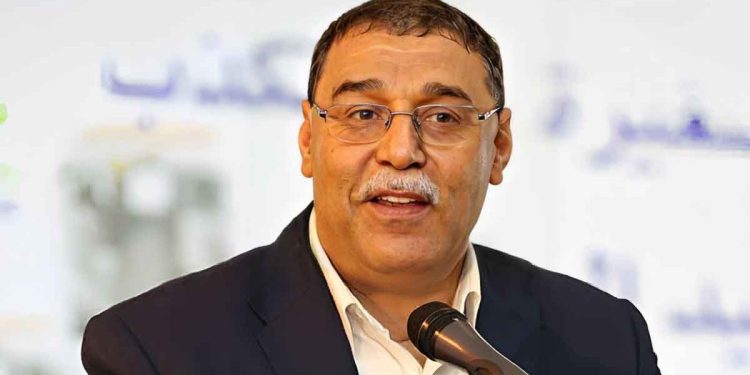Tunisian politician Abdelhamid Jlassi, detained in connection with the so-called “conspiracy against state security” case, has begun a hunger strike in prison.
His lawyers and family describe his detention conditions as “unjust” and the trial as a “political prosecution disguised as criminal charges.”
Jlassi, a prominent opposition figure, announced his hunger strike in defense of “the dignity of the nation and human dignity,” according to a brief statement shared by his wife, Monia Ibrahim, on Facebook.
His hunger strike, at age 65, comes amid a growing wave of similar protests inside Tunisian prisons. Other political detainees, such as Ennahda leader Rached Ghannouchi and National Salvation Front figure Jawhar Ben Mbarek, have also joined hunger strikes.
The “conspiracy against state security” case has targeted dozens of political, civil society, and media figures, raising serious concerns about the state of justice in Tunisia. What began as a judicial case now appears to serve as a tool for political pressure, as reflected in the nature of the charges and the ongoing arrests of opposition members.
Since February 2023, Tunisia has witnessed mass arrests of politicians, lawyers, and activists accused of charges like “undermining public order,” “espionage,” and “incitement to chaos.” Some have received preliminary sentences of up to 66 years in prison based on vague and sweeping allegations.
The prolonged trials, harsh detention conditions, and broadly interpreted charges point to a disturbing decline in the guarantees of fair trial rights and the principle of separation of powers.
Jlassi’s latest hunger strike, a former political prisoner who spent more than 16 years under Ben Ali’s regime, is a return to peaceful resistance tactics once used by opponents of authoritarianism. His protest reflects growing fears of democratic backsliding following the 2011 revolution.
The hunger strikes by Jlassi, Ghannouchi, Ben Mbarek, and their supporters aim to break the isolation imposed on political prisoners and to refocus attention on the core of Tunisia’s current crisis: the collapse of justice, shrinking political freedoms, and the weaponization of prisons against dissent.


























